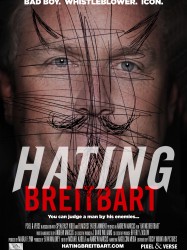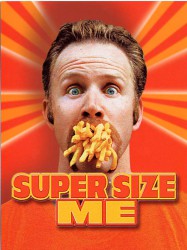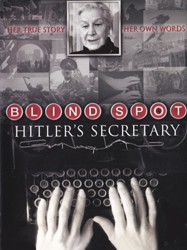Haiti: Harvest of Hope est un film haitien
Haiti: Harvest of Hope (1994)

Si vous aimez ce film, faites-le savoir !
Haiti: Harvest of Hope (1994) was originally planned as a documentary about democracy coming to Haiti with the election of Jean-Bertrand Aristide in December 1990. During the final editing of the original (late September 1991) Haiti was struck by yet another military coup. Editing of the first version came to a halt as Kevin Pina (the filmmaker) returned to Haiti and spent the next three weeks chronicling the brutality and machinations of Haiti's new military leaders and their supporters.
Kevin Pina returned to Haiti in late July 1993 just after the negotiation of the Governor's Island Accord between the Haitian Government in exile and General Raoul Cédras. Pina returned again in 1994 to film Aristide's return to Haiti.
The world television premiere of Harvest of Hope was in Haiti on Mother's Day, May 28, 1995. The Kreyol version was produced in association with Jean-Claude Martineau who also introduced the film on Télévision Nationale d'Haïti. The English version is narrated by Roscoe Lee Brown and premiered at the Mill Valley Film Festival in the summer of 1994.
Commentaires
Postez un commentaire :
Suggestions de films similaires à Haiti: Harvest of Hope
Il y a 7799 films qui ont les mêmes thèmes (dont 893 films qui ont les mêmes 2 thèmes que Haiti: Harvest of Hope), pour avoir au final 70 suggestions de films similaires.Si vous avez aimé Haiti: Harvest of Hope, vous aimerez sûrement les films similaires suivants :

Hating Breitbart (2012)
Origine Etats-Unis
Genres Documentaire
Thèmes Documentaire historique, Documentaire sur la politique, Politique
Acteurs Orson Bean, Alley Mills, James O'Keefe, Andrew Klavan
Note64%






Horns and Halos (2002)
, 1h30Réalisé par Michael Galinsky
Origine Etats-Unis
Genres Drame, Biographie, Documentaire
Thèmes Film sur un écrivain, Documentaire historique, Documentaire sur une personnalité, Documentaire sur la politique, Politique
Note70%





 , 55minutes
, 55minutesRéalisé par Anne Aghion
Thèmes Afrique post-coloniale, Le racisme, Documentaire sur la discrimination, Documentaire sur le droit, Documentaire sur la guerre, Documentaire historique, Documentaire sur une personnalité, Documentaire sur la politique, Politique
Note66%





The first film in this award-winning trilogy ventures into the rural heart of the African nation of Rwanda. Follow the first steps in one of the world’s boldest experiments in reconciliation: the Gacaca (Ga-CHA-cha) Tribunals. These are a new form of citizen-based justice aimed at unifying this country of 8 million people after the 1994 genocide which claimed over 800,000 lives in 100 days. While world attention is focused on the unfolding procedures, award-winning documentarian Anne Aghion bypasses the usual interviews with politicians and international aid workers, skips the statistics, and goes directly to the emotional core of the story, talking one-on-one with survivors and accused killers alike. In this powerful, compassionate and insightful film, with almost no narration, and using only original footage, she captures first-hand how ordinary people struggle to find a future after cataclysm.

Supersize Me (2004)
, 1h38Réalisé par Morgan Spurlock
Origine Etats-Unis
Genres Drame, Comédie, Documentaire
Thèmes Cuisine, Maladie, Obésité, Le monde du travail, Documentaire sur la cuisine, Documentaire sur le monde des affaires, Documentaire sur la malbouffe, Documentaire sur la politique, Documentaire sur la santé, Documentaire sur le monde du travail, Le handicap, Politique
Acteurs Morgan Spurlock
Note71%





Plus d'un tiers des enfants et des adolescents américains ont un problème de poids. Deux adultes sur trois aux États-Unis d'Amérique sont atteints de surcharge pondérale ou d'obésité. Comment les États-Unis sont-ils devenus aussi gros ? Les chaînes de restauration rapide sont souvent montrées du doigt mais plusieurs procès qui leur ont été intentés par des clients devenus obèses ont été perdus faute de preuves.

American Standoff (2002)
, 1h35Origine Etats-Unis
Genres Documentaire
Thèmes Le monde du travail, Documentaire sur la politique, Politique
Note74%





The Teamsters' strike against Overnite began on October 24, 1999. James P. Hoffa had been elected president of the Teamsters in the fall of 1998, and had campaigned on a promise to unionize Overnite and securing a contract for its 13,000 workers. The Teamsters represented only a fraction of Overnite's workers, but believed they could use other means to win company recognition of the union. Initially, about 2,000 workers walked the picket line in 12 states. The strike turned violent, however, and both sides accused the other of bribery, spying, intimidation and more. By August 2002, only 300 to 600 workers remained on strike. The Teamsters called the strike off without securing a contract or union recognition.

Genres Documentaire
Thèmes Afrique post-coloniale, La musique, Le racisme, Documentaire sur la discrimination, Documentaire sur le droit, Documentaire sur la musique, Documentaire sur une personnalité, Documentaire sur la politique, Musique, Politique
Acteurs Walter Cronkite, Hugh Masekela, Miriam Makeba
Note73%





In the film, South African musicians, playwrights, poets and activists recall the struggle against apartheid from the 1940s to the 1990s that stripped black citizens of South Africa of basic human rights, and the important role that music played in that struggle. The documentary uses a mixture of interviews, musical performances and historical film footage. Among the South Africans who take part are Miriam Makeba, Abdullah Ibrahim, Hugh Masekela, Vusi Mahlasela and others.

500 Dunam on the Moon (2002)
Origine Etats-Unis
Genres Documentaire
Thèmes Afrique post-coloniale, Religion, Documentaire sur le droit, Documentaire sur la guerre, Documentaire historique, Documentaire sur une personnalité, Documentaire sur la politique, Documentaire sur la religion, Politique, Religion juive

Kolybelnaya (1937)
Réalisé par Dziga Vertov
Genres Documentaire
Thèmes Documentaire sur la politique, Politique
Note67%






The New Rulers of the World (2001)
, 1h5Réalisé par John Pilger
Origine Royaume-uni
Genres Documentaire
Thèmes Documentaire sur la politique, Politique
Acteurs John Pilger
Note77%





John Pilger explores the impact of globalisation, taking Indonesia as his prime example, a country that the World Bank described as a "model pupil" until its 'globalised' economy collapsed in 1998. Under scrutiny are the increasingly powerful multinationals and the institutions that back them, notably the IMF and The World Bank.
 , 1h27
, 1h27Genres Guerre, Documentaire
Thèmes Le racisme, Religion, Documentaire sur la discrimination, Documentaire sur le droit, Documentaire sur la guerre, Documentaire historique, Documentaire sur une personnalité, Documentaire sur la politique, Documentaire sur la religion, Politique, Religion juive, Documentaire sur la Seconde Guerre mondiale
Note72%





 Connexion
Connexion